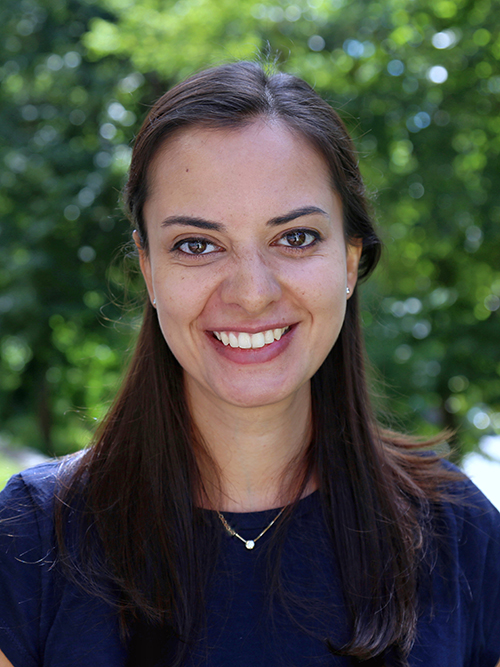
How did you first become interested in immigration policy as a topic for your dissertation?
I’ve always been really interested in the concept of inclusion, and I got my master’s in human rights policy from University College London, where I did some research on inclusion through semi-autonomous governance for Indigenous populations in Indonesia.
Prior to coming to Heller, I worked for several years on health equity and inclusion of poor and marginalized groups through a large Cambodian health-sector project connected with the World Bank. I had also spent time right out of college working to help refugees resettling in the Baltimore area, which had a profound impact on my understanding of immigrant experiences.
When I came to Heller, I knew I wanted to study how to make health systems more inclusive, but I wasn’t sure which groups I wanted to study. Over the past few years, I got more involved with a couple of research projects looking at migrant health. That was when it really clicked, and I got more interested in migration.
On a personal level, I grew up living all over the world — in Ghana, India, Thailand, Indonesia, the U.K., and the United States. I think I really related to immigrant experiences, and it felt intuitive for me to study those issues.
Tell me about your dissertation.
My dissertation attempts to study broader contexts around immigration by looking at state-level policies on immigrant inclusion, and how these impact self-reported health outcomes — by legal status, and by race and ethnicity.
There hasn’t been a lot of research on structural determinants of health and immigrant experiences, especially research that goes beyond studying access to care. There are structural forces that constrain that access, like social hierarchies and government policies, and I want to study that.
Researchers have mainly looked at immigration enforcement and access to public benefits, and I’ll be building on an exciting data source from the Urban Institute that tracked immigration policies between 2000 and 2020 across three domains: integration, public benefits, and enforcement. It’s a robust source that I’m hoping to add to.
I’ll also be looking at some social policy measures, like labor market, housing, and nondiscrimination laws. I want to build out a measurement of how we can look at inclusion at the state level and make a connection to health outcomes. I’ll also look at the impact of the Affordable Care Act’s Medicaid expansion of 2014, which was seminal in health policy for its overhaul of the health insurance system and how it impacted immigrant experiences and state policy in regard to who gets what benefits. I’m hoping to understand how that impacted immigrant inclusion and health outcomes.
What have you uncovered so far in your research?
I’m in the process of writing my proposal and will be defending it soon, but I feel like I’ve been working on my research for two years already. I came into the program and slowly, through my coursework and research projects, I started doing preliminary analysis for my proposal and have looked more deeply into that Urban Institute data resource, which tracked policies over time. I wanted to make sure that my ideas about inclusion would hold up to investigation, and I was really happy with what I found.
The analysis I’ve undertaken so far supports my hypothesis that state policies flowed from being restrictive or exclusionary to inclusive, showing up as either negative or positive based on the Urban Institute data. Preliminarily, that does seem to hold up as an aggregate measure of inclusion, which I am excited about. Of course, the bulk of my research will happen after my proposal is defended.
How do you hope to incorporate your research into work you’ll do in the future?
My concentration is in global health, and my past work has also been in this area, so I see myself going back into that field. While my dissertation focuses on the U.S., I can really see the issue globally. How health systems can best integrate and promote inclusion for different migrant groups is a universal matter. I see it again and again in countries like the Democratic Republic of Congo (DRC), in Colombia, in Jordan, and in Bangladesh, and I’d love to keep working on these issues, both in the U.S. and globally.
Right now, I’m focused on getting my dissertation done, but hopefully I’ll soon be looking at opportunities to continue my research around the world.
